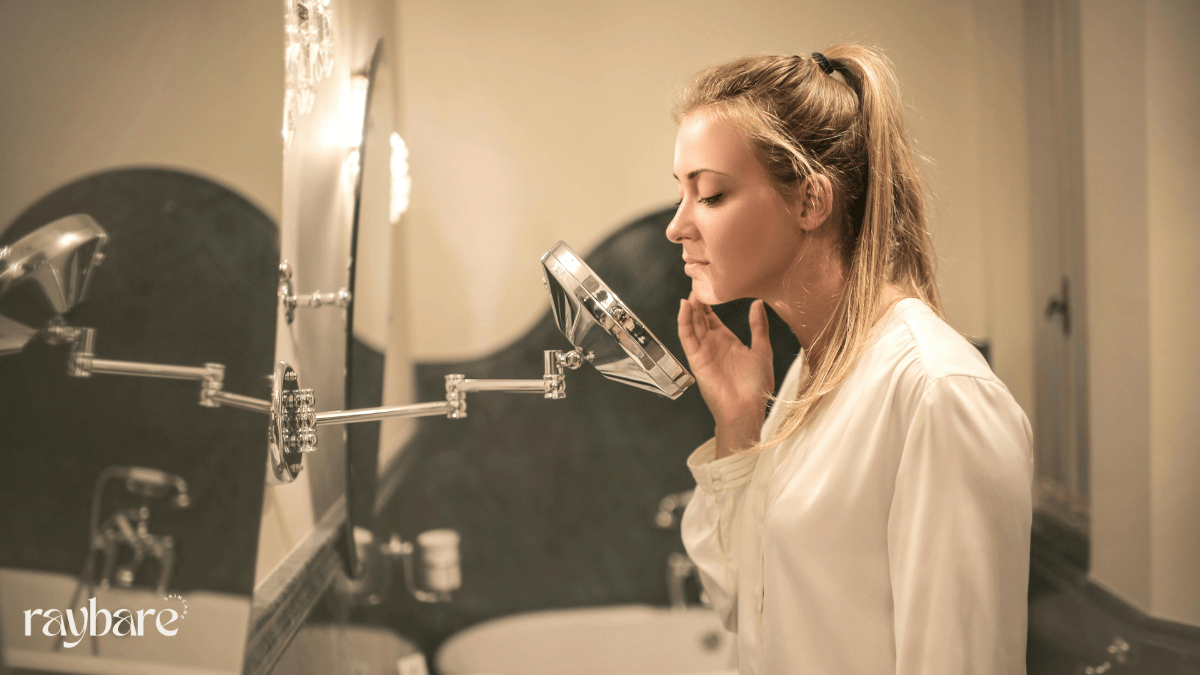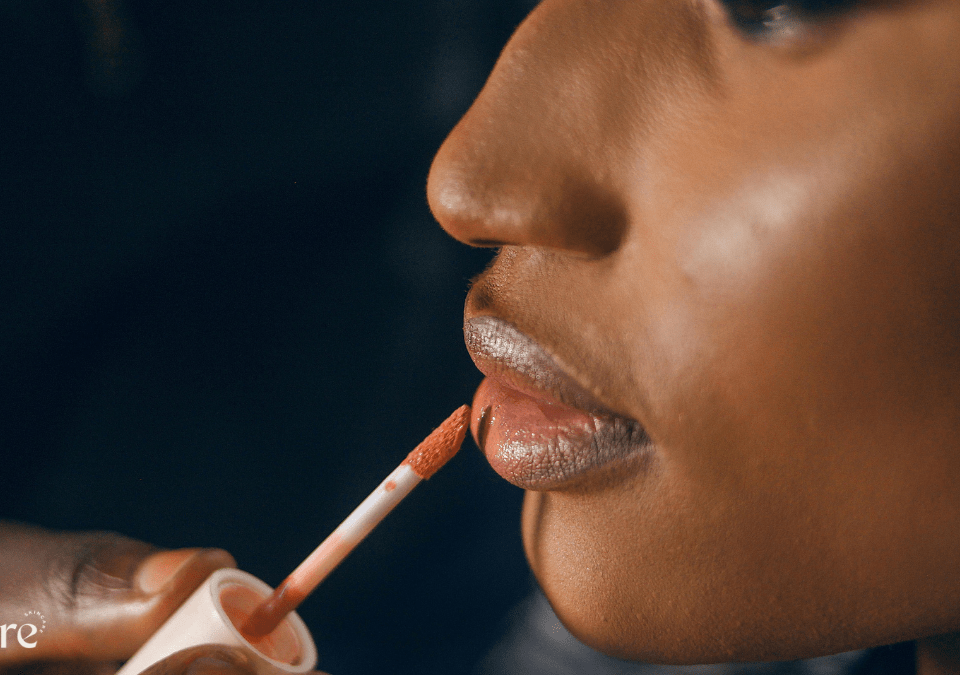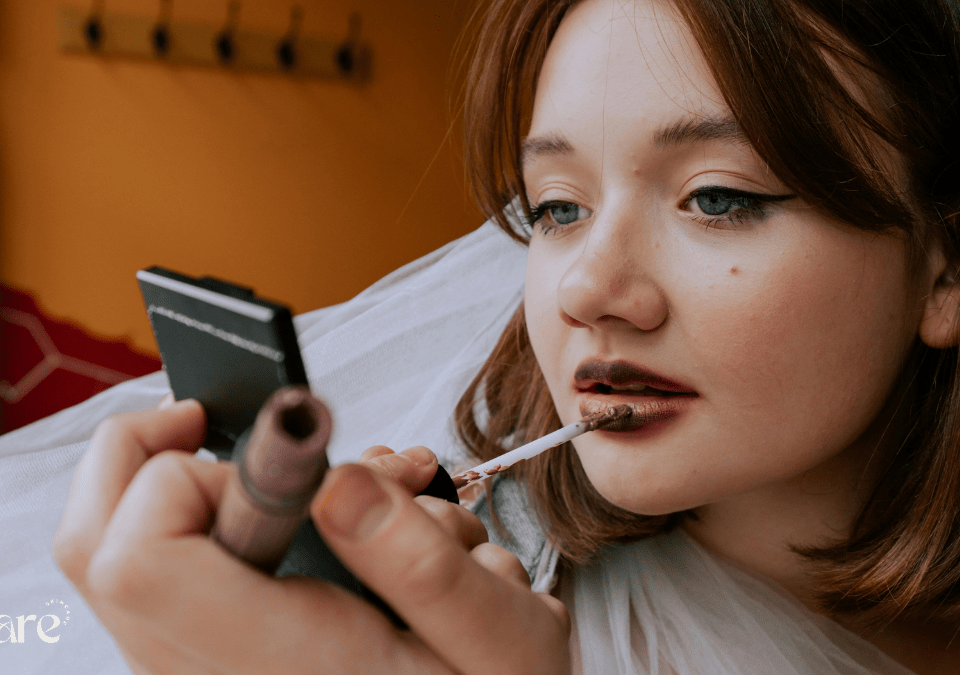Skincare reduces stress by calming the mind and repairing stress-induced skin damage. High cortisol levels cause dryness, wrinkles, and breakouts, but a hydrating routine with massage and soothing ingredients can reverse a stress-looking face. Studies and NHS guidelines confirm that stress worsens conditions like eczema and acne, but proper skincare helps restore balance.
How Skincare Reduces Stress and Improves Your Skin’s Health
Stress doesn’t just affect your mind—it shows on your face too. From dullness and wrinkles to breakouts and dryness, stress can wreak havoc on your skin in multiple ways. The physical manifestations of stress often include a tired-looking complexion, increased sensitivity, and even flare-ups of existing skin conditions. But here’s the good news: a consistent, well-thought-out skincare routine can help reverse these effects while simultaneously calming your mind.
The connection between mental well-being and skin health is well-documented in dermatological studies. When we take the time to care for our skin properly, we’re not just addressing surface-level concerns—we’re also engaging in a form of self-care that reduces stress hormones. Let’s explore how skincare reduces stress and improves your skin’s overall health in the long run.

The Connection Between Stress and Skin
When you’re stressed, your body releases cortisol, a hormone that triggers inflammation and disrupts normal skin function. Elevated cortisol levels lead to various skin conditions caused by stress and anxiety, such as acne, eczema, and psoriasis, as noted by the NHS. You might also notice increased dry skin on your face, redness, or even premature wrinkles forming due to prolonged tension.
Looking at stress face before and after pictures, you’ll often see a tired, dull complexion transform into a brighter, healthier one with proper care. The question many people ask is: Can stress wrinkles go away? The answer is yes—with the right skincare regimen and stress management techniques, you can improve your skin’s texture and elasticity over time.
Chronic stress doesn’t just cause temporary issues; it accelerates aging by breaking down collagen and elastin, the proteins responsible for keeping skin firm and youthful. Additionally, stress-induced habits like frowning, clenching the jaw, or rubbing the eyes can contribute to fine lines and puffiness. Understanding this connection is the first step in reversing the damage.
How Skincare Reduces Stress
- Massage and Relaxation
Applying moisturizer or facial oil with gentle massage techniques not only boosts circulation but also relaxes facial muscles. This helps reduce a stress-looking face by easing tension in areas like the forehead, jawline, and around the eyes. The repetitive, soothing motions signal the brain to release endorphins, which naturally counteract stress. - Hydration Fights Stress-Induced Dryness
Does stress cause dry skin on the face? Absolutely. Cortisol weakens the skin’s moisture barrier, leading to dehydration and irritation. Using hydrating serums with hyaluronic acid and ceramide-rich creams replenishes lost moisture, making skin look plump and refreshed. Well-hydrated skin is also more resilient against environmental stressors. - Routine = Mindfulness
A consistent skincare routine acts as a form of self-care, providing a few minutes of focused “me time.” This mental break helps lower stress levels, creating a positive feedback loop where better mental health leads to better skin, and vice versa. The act of cleansing, applying products, and massaging the skin can be meditative, grounding you in the present moment. - Targeting Stress-Related Skin Issues
Certain ingredients are particularly effective at repairing skin conditions caused by stress and anxiety. Niacinamide reduces redness and inflammation, hyaluronic acid combats dehydration, and retinol stimulates collagen production to minimize fine lines. Antioxidants like vitamin C protect against free radical damage, which increases under stress.
How to Get Rid of a Stress-Looking Face
If your skin is showing signs of stress, a few adjustments to your routine can make a big difference. Start by cleansing gently with a mild, pH-balanced cleanser to remove impurities without stripping moisture. Follow with a calming toner containing ingredients like chamomile or aloe vera to soothe irritation.
Next, apply a hydrating serum with hyaluronic acid or glycerin to combat cortisol-induced dryness. Lock in moisture with a nourishing cream or facial oil, preferably one with ceramides to strengthen the skin barrier. Finally, incorporate facial massage using your fingertips or a jade roller to relax tense muscles and improve circulation.
For those dealing with persistent stress-related skin issues, consider consulting a dermatologist. They can recommend treatments like LED therapy, professional peels, or prescription topicals to accelerate healing.
Personal Experience
I’ve personally struggled with stress-related breakouts and dull skin during particularly busy periods. My skin would feel tight, flaky, and covered in redness, making me even more self-conscious. After researching how skincare reduces stress, I decided to incorporate a dedicated nighttime routine with gentle massage and hydrating products.
Within weeks, I noticed my skin looked calmer, and the act of taking those few minutes for myself genuinely lowered my anxiety. The ritual of applying each product became a moment of mindfulness, helping me unwind before bed. It’s proof that skincare is more than surface-level—it’s a form of therapy that benefits both the skin and the mind.

FAQ’s
1. How does skincare reduce stress?
Skincare routines promote relaxation through massage, hydration, and mindfulness, lowering cortisol levels and improving skin health. The repetitive motions and sensory experience (like the scent of products) can trigger a calming response in the brain.
2. Can stress wrinkles go away?
Yes, with consistent care (retinol, hydration, and SPF), stress-induced fine lines can fade over time. However, deep-set wrinkles may require professional treatments like microneedling or laser therapy.
3. Does stress cause dry skin on the face?
Yes, cortisol disrupts the skin barrier, leading to dehydration. Hyaluronic acid and ceramides help restore moisture, while avoiding harsh products prevents further irritation.
4. What are common skin conditions caused by stress and anxiety (NHS)?
Eczema, psoriasis, acne, and rosacea often flare up due to stress, as confirmed by the NHS. Stress can also delay wound healing and worsen conditions like dandruff or hives.
5. How to get rid of a stress-looking face?
Hydrate, massage, use calming ingredients (like niacinamide), and maintain a consistent routine. Getting enough sleep and managing stress through exercise or meditation also helps.
6. What are the effects of high cortisol on skin?
Increased oil production, dryness, inflammation, and accelerated aging. Cortisol also weakens immunity, making skin more prone to infections and slow recovery.
7. How does skincare help mental health?
The ritual of skincare provides a mindful break, reducing anxiety and promoting self-care. The sensory experience (touch, scent) can be grounding, while visible improvements boost confidence.
Conclusion
Taking care of your skin isn’t just about looking good—it’s a scientifically backed way to reduce stress and improve your overall well-being. When life gets overwhelming, cortisol spikes, leading to dryness, breakouts, and premature aging. But by sticking to a mindful skincare routine, you can counteract these effects while giving yourself a much-needed mental break.
Follow More Articles Here:




